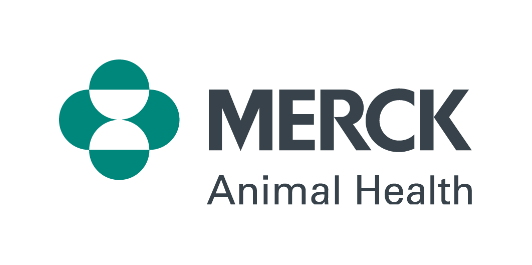Merck Animal Health Proudly Supports Vaccination Programs Targeted at Reducing Disease in Domestic Pets
More Than One Million Doses of Rabies Vaccine Donated
SUMMIT, N.J., Sept. 28, 2013 – In recognition of World Rabies Day, and in an effort to reduce the number of people dying of the disease, Merck Animal Health (known as MSD Animal Health outside the USA and Canada) is proud to support canine rabies vaccination programs in some of the most at-risk regions in the world. To date, more than one million doses of veterinary rabies vaccine have been donated in the effort to eliminate the risk to human health in these regions.
Rabies is a debilitating and deadly problem that affects people and their pets all over the world. According to the World Health Organization, more than 55,000 people die of rabies every year, mostly in Asia and Africa. For this reason, Merck Animal Health has donated up to 300,000 doses of lifesaving veterinary rabies vaccine to those regions this year alone. The program runs in more than 20 developed countries, where participating veterinarians and pet owners who chose Merck Animal Health’s Nobivac® vaccine, have their usage matched by a company donation of rabies vaccine.
“We are extremely proud to have been able to provide more than one million doses of rabies vaccine supporting important programs targeted in the most at-risk regions in the world,“ states David Hallas, Associate Vice President, Merck Animal Health. “These volunteer-based programs work to prevent, control and ultimately eradicate rabies from these regions.”
Afya Serengeti Program in Africa – Means ‘Health in Serengeti’ in Swahili
The Afya Serengeti program, founded as a university-based research project by Professor Sarah Cleaveland in 1997, has prevented thousands of cases of rabies around the Serengeti National Park in Africa. Research has shown that domestic dogs acted as the reservoir of rabies, accounting for 85% of human exposures in the region.
Since the start of the program, deaths attributed to rabies have been reduced by 86% in vaccinated areas and since 2006, no rabies deaths have been reported in any vaccinated African Maasai villages.
‘Mission Rabies’ in India
‘Mission Rabies’ is an initiative of Luke Gamble, organized through his charity, Worldwide Veterinary Service (WVS). The mission has been working toward its goal to vaccinate 50,000 street dogs in 10 rabies hot spots in India throughout September. Of the worldwide deaths attributed to rabies, over a third are reported to occur in India, affecting mostly people of poor or low-income socioeconomic status. Between 30-60% of those deaths being children under 16. It is estimated that 15 million people in India are bitten by animals annually.
Continued Commitment
“We have aspirations to create a world free of rabies, which we believe is achievable through programs like those we support today,” says David Sutton, Technical Director, Merck Animal Health. “Our goal is to not only donate vaccines to help eliminate rabies in the countries with the greatest risk, but to gain additional scientific data that will help us to understand the spread of rabies and how best to control it.”
Merck Animal Health encourages pet owners to help veterinary professionals continue in the fight against rabies and vaccinate their pets today. For more information visit www.worldrabiesday.org, www.afya.org, www.wvs.org.uk and www.nobivac.com.
About Merck Animal Health
Today’s Merck is a global healthcare leader working to help the world be well. Merck Animal Health, known as MSD Animal Health outside the United States and Canada, is the global animal health business unit of Merck. Merck Animal Health offers veterinarians, farmers, pet owners and governments one of the widest range of veterinary pharmaceuticals, vaccines and health management solutions and services. Merck Animal Health is dedicated to preserving and improving the health, well-being and performance of animals. It invests extensively in dynamic and comprehensive R&D resources and a modern, global supply chain. Merck Animal Health is present in more than 50 countries, while its products are available in some 150 markets. For more information, visit www.merck-animal-health.com.
Merck forward-Looking Statement
This news release includes “forward-looking statements” within the meaning of the safe harbor provisions of the United States Private Securities Litigation Reform Act of 1995. These statements are based upon the current beliefs and expectations of Merck’s management and are subject to significant risks and uncertainties. If underlying assumptions prove inaccurate or risks or uncertainties materialize, actual results may differ materially from those set forth in the forward-looking statements.
Risks and uncertainties include but are not limited to, general industry conditions and competition; general economic factors, including interest rate and currency exchange rate fluctuations; the impact of pharmaceutical industry regulation and health care legislation in the United States and internationally; global trends toward health care cost containment; technological advances, new products and patents attained by competitors; challenges inherent in new product development, including obtaining regulatory approval; Merck’s ability to accurately predict future market conditions; manufacturing difficulties or delays; financial instability of international economies and sovereign risk; dependence on the effectiveness of Merck’s patents and other protections for innovative products; and the exposure to litigation, including patent litigation, and/or regulatory actions.
Merck undertakes no obligation to publicly update any forward-looking statement, whether as a result of new information, future events or otherwise. Additional factors that could cause results to differ materially from those described in the forward-looking statements can be found in Merck’s 2012 Annual Report on Form 10-K and the company’s other filings with the Securities and Exchange Commission (SEC) available at the SEC’s Internet site (www.sec.gov).
